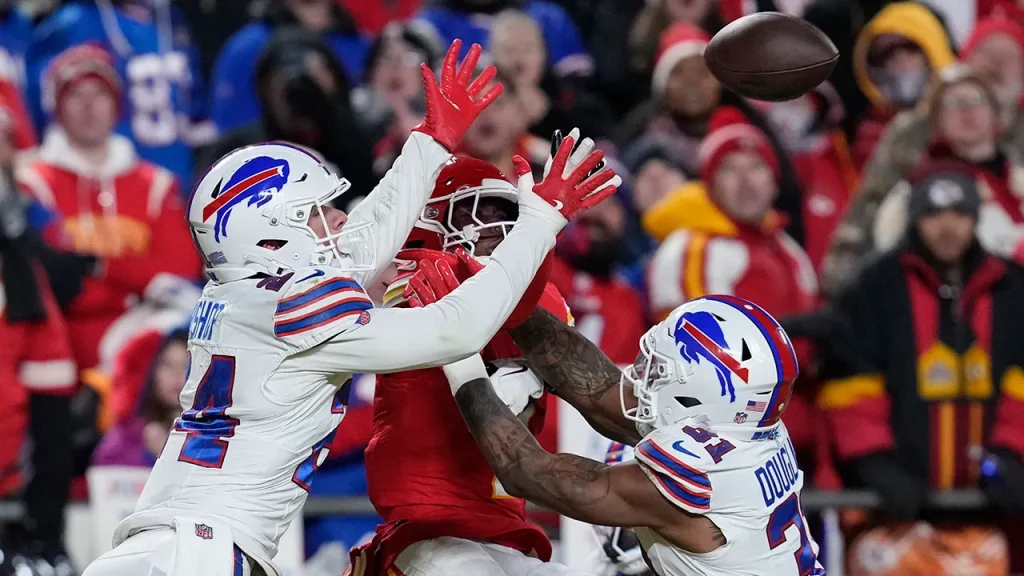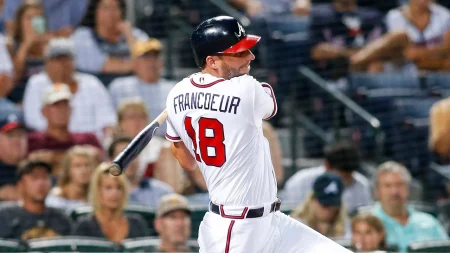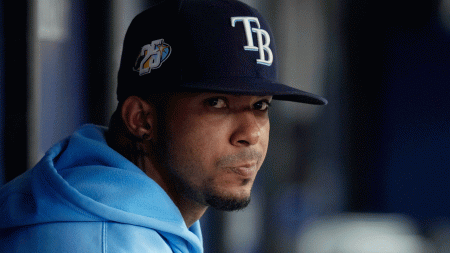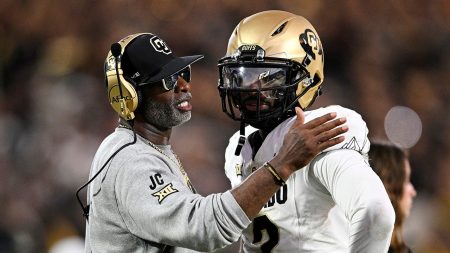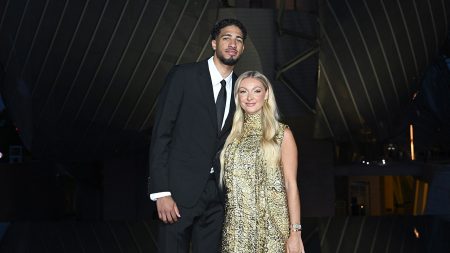The AFC Championship game between the Kansas City Chiefs and the Buffalo Bills ignited controversy with a pivotal call late in the first half that favored the Chiefs. With the Chiefs facing a crucial 3rd-and-5 situation and the score relatively close, quarterback Patrick Mahomes scrambled, evading pressure just long enough to launch a pass towards rookie wide receiver Xavier Worthy. Bills safety Cole Bishop contested the catch, seemingly gaining possession of the ball momentarily while airborne. However, as both players descended towards the turf, Worthy managed to secure the ball with his arm, leading to a disputed completion. The officials on the field ruled in favor of Worthy, signaling a first down for the Chiefs, a decision that would prove consequential.
The contentious play quickly became a focal point of debate, with Bills head coach Sean McDermott challenging the ruling on the field. Replays of the catch, viewed from multiple angles and in slow motion, appeared to show the tip of the football making contact with the ground, further fueling the controversy. Despite these visual cues, the officials upheld the initial call, awarding possession to the Chiefs. The ensuing drive culminated in a Patrick Mahomes rushing touchdown, extending Kansas City’s lead to 21-10, a margin significantly influenced by the disputed catch.
The controversial call immediately drew strong reactions from fans, particularly those supporting the Buffalo Bills. Social media platforms buzzed with accusations of biased officiating, with many highlighting the perceived favoritism towards the Kansas City Chiefs. This sentiment was not entirely new, as similar criticisms had been directed towards the officiating crew following the Chiefs’ divisional round victory over the Houston Texans, where questionable calls also favored Kansas City. The recurring nature of these close calls ignited a broader conversation about the consistency and objectivity of officiating in high-stakes NFL games.
The allegations of preferential treatment did not go unnoticed by Patrick Mahomes, the Chiefs’ star quarterback. When questioned about the perceived bias during the week leading up to the AFC Championship game, Mahomes dismissed the notion, emphasizing his focus on playing the game and respecting the referees’ decisions. He stated, “I don’t feel that way… I just try to play football at the end of the day. The referees are doing their best to call the game as fair and proper as best they can.” Mahomes’ comments reflect a broader perspective within the Chiefs organization, prioritizing their own performance and leaving the officiating matters to the designated authorities.
The disputed catch in the Chiefs-Bills game serves as a microcosm of the broader challenges surrounding officiating in professional sports. The inherent speed and complexity of the game, coupled with the limitations of human perception and judgment, create an environment where controversial calls are almost inevitable. While replay reviews and advanced technologies aim to minimize errors, the element of human interpretation remains a critical factor, often leading to discrepancies and disagreements. The debate surrounding the Xavier Worthy catch underscores the inherent tension between the desire for objective rulings and the inherent subjectivity of officiating decisions.
The fallout from the contentious call extended beyond the immediate game, sparking broader discussions about the role of officiating in determining the outcome of sporting events. The perceived bias towards certain teams, whether real or imagined, can undermine the integrity of the competition and erode trust in the fairness of the game. The NFL, like other professional sports organizations, continuously grapples with the challenge of ensuring consistent and impartial officiating, striving to strike a balance between human judgment and technological assistance. The disputed catch in the AFC Championship game serves as a reminder of the ongoing need for transparency and accountability in officiating, as well as the enduring impact of close calls on the narratives surrounding these highly competitive contests.




